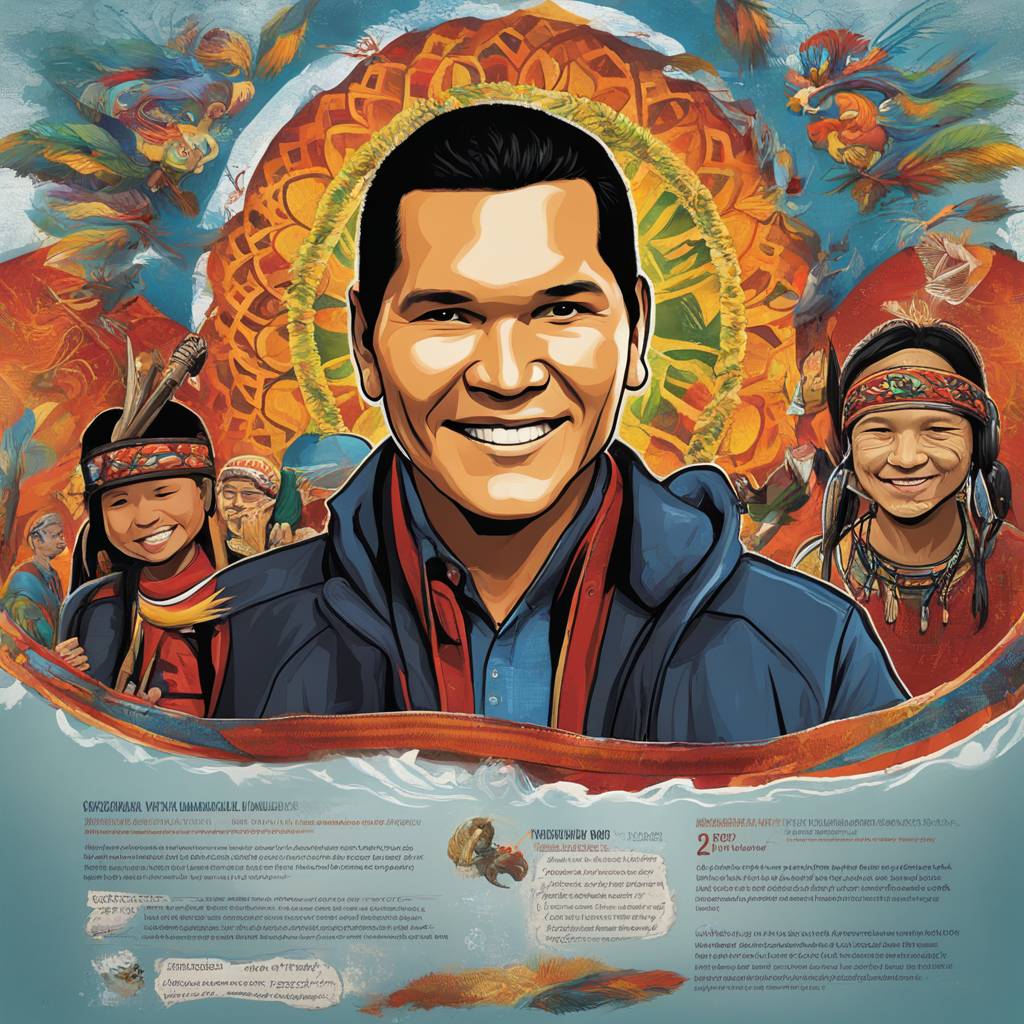Manitoba Premier Wab Kinew emphasized the significance of Indigenous youth speaking their traditional languages in a statement released on National Indigenous Languages Day. Kinew highlighted the diversity of Indigenous languages spoken in Manitoba, including Anishinaabemowin, Dakota, Cree, Anisininew, Métis, Inuit, and Dene. He expressed the belief that youth will be healthier if they continue to speak these languages, connecting them to their ancestral lands and cultures. Elder Dr. Ellen Cook, who is involved with Indigenous Languages Manitoba, emphasized that speaking one’s own language is essential for preserving culture and connecting with the environment as traditional stewards. She has been teaching Indigenous languages at universities and colleges for the past 50 years, and she understands the importance of language structure in preserving these vital forms of communication.
Indigenous Languages Manitoba is a non-profit organization dedicated to teaching seven Indigenous languages with the goal of supporting the strength and survival of these languages. Through their initiatives, they promote the importance of Indigenous languages in preserving cultural heritage and fostering connections with ancestral lands. By teaching these languages, they aim to empower Indigenous communities and individuals to reclaim and revitalize their linguistic traditions. This work is crucial in the ongoing efforts to preserve and strengthen Indigenous languages in Canada and beyond.
The recognition of National Indigenous Languages Day serves as a reminder of the rich linguistic diversity present within Indigenous communities in Manitoba and across Canada. It also underscores the importance of language preservation as a means of upholding cultural identity and heritage. By facilitating the teaching and learning of Indigenous languages, organizations like Indigenous Languages Manitoba play a vital role in preserving these languages for future generations. Their efforts contribute to the ongoing revitalization of Indigenous languages and help to ensure their survival in the face of linguistic endangerment and loss.
The statement released by Premier Wab Kinew and the work of Indigenous Languages Manitoba highlight the interconnectedness of language, culture, and environment within Indigenous communities. By promoting the use and preservation of Indigenous languages, they seek to empower Indigenous youth and individuals to connect with their heritage and traditions. Through language revitalization efforts, they aim to not only preserve linguistic diversity but also foster a deeper appreciation for Indigenous knowledge systems and ways of living. This work is essential in building stronger, more resilient Indigenous communities and promoting cultural continuity across generations.
National Indigenous Languages Day serves as a call to action for individuals and organizations to prioritize the preservation and revitalization of Indigenous languages. It is a reminder of the historical and ongoing impacts of colonization on Indigenous languages and the urgent need to support language revitalization efforts. By recognizing the importance of Indigenous languages in shaping cultural identity and fostering connections with the land, we can work towards creating a more inclusive and diverse society that values linguistic diversity. Through collective efforts to support Indigenous language initiatives, we can contribute to the preservation and promotion of Indigenous languages for future generations.
In conclusion, the celebration of National Indigenous Languages Day in Manitoba and the work of organizations like Indigenous Languages Manitoba highlight the importance of preserving and revitalizing Indigenous languages as a means of upholding cultural identity, fostering connections with the environment, and empowering Indigenous communities. By recognizing the significance of Indigenous languages and supporting initiatives that promote their use and preservation, we can contribute to the ongoing efforts to safeguard linguistic diversity and ensure the survival of Indigenous languages for future generations. It is through collective action and collaboration that we can work towards creating a more inclusive society that values and celebrates linguistic diversity, reflecting the rich cultural tapestry of Indigenous peoples in Canada.


